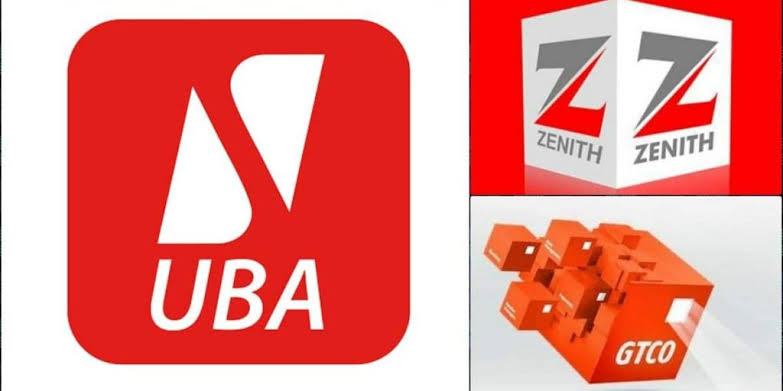The Nigerian government’s implementation of a windfall tax on banks has begun yielding significant revenue, with six major banks already remitting a combined total of N205.59 billion for the 2024 financial year. This development confirms that lobbying efforts by the banking sector to mitigate the impact of the tax have been unsuccessful. Zenith Bank leads the pack with a payment of N63.31 billion, followed by UBA at N57.91 billion (covering both 2023 and 2024), GTCO at N51.25 billion, Stanbic IBTC Holdings at N17.18 billion, Fidelity Bank at N13.33 billion, and Wema Bank at N2.62 billion. These payments represent the initial wave of collections, with government projections indicating a potential total revenue of N1 trillion from the levy, suggesting that substantial sums are yet to be collected from other banks.
The windfall tax, formalized through the Finance (Amendment) Act 2023, levies a 70% charge on realized profits from foreign exchange transactions made by banks between 2023 and 2025. This legislation was enacted in response to the substantial profits banks accrued due to the naira’s devaluation in mid-2023. The devaluation resulted in significant unrealised and realised foreign exchange gains for banks holding foreign currency assets. The government aims to utilize the revenue generated from this tax to boost its tax-to-GDP ratio from 11% to 18% within three years. This ambitious target underscores the government’s focus on increasing revenue mobilization and fiscal consolidation.
The justification for the windfall tax lies in the principle of capturing profits derived from unforeseen and favorable market conditions rather than from a company’s inherent operational efficiency or strategic initiatives. In this case, the devaluation of the naira, a policy decision by the Central Bank of Nigeria, created a windfall for banks holding foreign currency assets. The government argues that taxing these gains is a legitimate way to share in the benefits derived from its policy decisions. However, the banking sector has expressed reservations about the tax, arguing that it penalizes them for circumstances beyond their control and could potentially undermine their financial stability.
Despite initial resistance from the banking sector, including lobbying efforts to reduce the tax rate, the government has held firm in its implementation strategy. Reports suggest that bank executives engaged in high-level lobbying with the presidency and other government officials to seek a reduction in the 70% levy. However, these efforts appear to have been unsuccessful, as the government proceeds with collecting the tax at the stipulated rate. The initial payments made by the six banks represent a significant step towards achieving the government’s revenue target and signal its resolve to implement the tax despite industry opposition.
The introduction of the windfall tax has drawn criticism from various stakeholders, including shareholder advocacy groups. Concerns have been raised regarding the potential negative impact of the tax on the banking sector’s profitability and capital adequacy, especially for banks operating close to regulatory capital thresholds. International rating agencies, such as Moody’s, have also expressed concerns about the credit implications of the tax for Nigerian banks. Shareholder representatives argue that the government should also address the negative impacts of the naira devaluation on other sectors of the economy, rather than solely focusing on taxing the gains made by banks. They advocate for a more balanced approach that considers the broader economic consequences of the devaluation.
Looking ahead, the government’s success in collecting the projected N1 trillion from the windfall tax will depend on its ability to enforce compliance among all affected banks. While the initial payments signify a positive start, significant sums remain outstanding. The ongoing debate surrounding the tax highlights the complex interplay between government revenue generation, financial sector stability, and the broader economic impact of policy decisions like currency devaluation. The long-term consequences of the windfall tax on the Nigerian banking sector and the economy as a whole remain to be seen.


